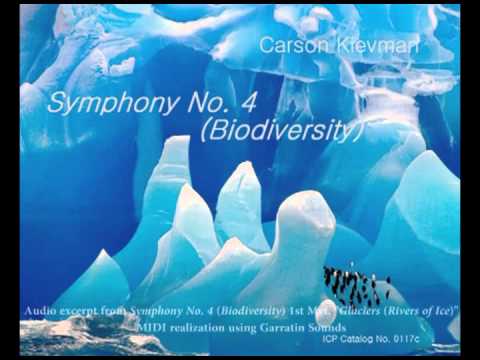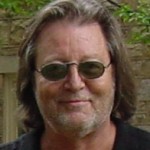
Composer’s Kickstarter project seeks to record ecologically minded symphony
When Carson Kievman and his brother took a trip out to a coral reef in the Florida Keys recently, they discovered something ominous.
“It was completely dead,” said Kievman, a composer and founder of the SoBe Institute of the Arts in Miami Beach. “The tourists were happy because they were seeing barracuda and parrotfish, but the reef itself was completely gone.”
Environmental concerns are among the most challenging and wide-ranging of all the urgent situations the planet currently faces. To call attention to them, Kievman has completed and revised his Symphony No. 4, subtitled Biodiversity. Last Saturday he launched a Kickstarter campaign to raise enough money to have a recording made of the work.
He’s looking for $35,586 to hire the Polish National Radio Symphony Orchestra, which has recorded two other Kievman symphonies (“They did a fantastic job,” he said), and conductor Delta David Gier. He’s hoping to have the disc out next year some time. Proceeds from CD sales would benefit SoBe Arts.
Kievman said he began writing the work in 1997 at the behest of Robert Ginsburg, the legendary coral reef expert at the University of Miami’s Rosenstiel School of Marine and Atmospheric Science, who was organizing the first International Year of the Reef.
“He asked me if I would considered writing something for orchestra. He thought that would be a great to draw attention to the plight of the coral reefs and also make the conference even more interesting,” Kievman said, speaking Friday from New Brunswick, N.J.
Carson Kievman.
Although the orchestral performance for the reef conference did not come off, Kievman continued composing, and last year, revised the work and completed it as a four-movement symphony, with each section dedicated to a different aspect of global ecology and biodiversity. The first movement is titled Glaciers (Rivers of Ice), the second The Great Swamp, and the fourth is titled The Year of the Reef.
The third movement is called Starving Angels, and is a reflection on the crisis as a whole.
“It’s really about humanity and its callous attitude … The heavens are crying out,” he said.
Kievman said he didn’t have any particular program in mind for the symphony.
“I had in mind for each movement what I wanted to express, and it came naturally,” he said. Certain kinds of music suggested themselves, though, such as in the Glaciers movement.
“You would imagine some sort of melting and breaking off into the water, and then rejoining other glaciers. That lends itself to the kind of music I like to write: Long lines that take their sweet time developing,” he said.
While the music is an expression of Kievman’s concerns about the environment, he wants the chief beneficiary of the recording to be his arts organization.
“I feel SoBe Arts needs more attention,” he said, pointing out that Miami Beach’s current debate over the redevelopment of its Convention Center district is consuming much of the public’s attention. “SoBe Arts has done so much great work. Thousands of families have benefited from it … I just don’t want SoBe Arts to get buried.”
Last month, SoBe Arts presented a two-piano concert examining the influence of Richard Wagner on 20th and 21st-century music, as well as a performance of Olivier Messiaen’s Quartet for the End of Time. Next week, the organization will host the Miami Jazz Project in a concert set for June 28. Next season it will mount another in its series of American Masterworks programs, which in late 2011 featured prominent performers such as violinist Lara St. John, violist Kim Kashkashian and cellist Matt Haimovitz, and composer John Corigliano.
Kievman makes no claim to special scientific expertise on environmental matters, but he is worried about the ecological future.
“I don’t know that human beings are going to be able to get it together. I’m not optimistic,” he said. “But maybe if enough people talk it about it, something can change.”
Recent Content
-
Artsarticle ·
-
Artsarticle ·
-
Artsarticle ·

